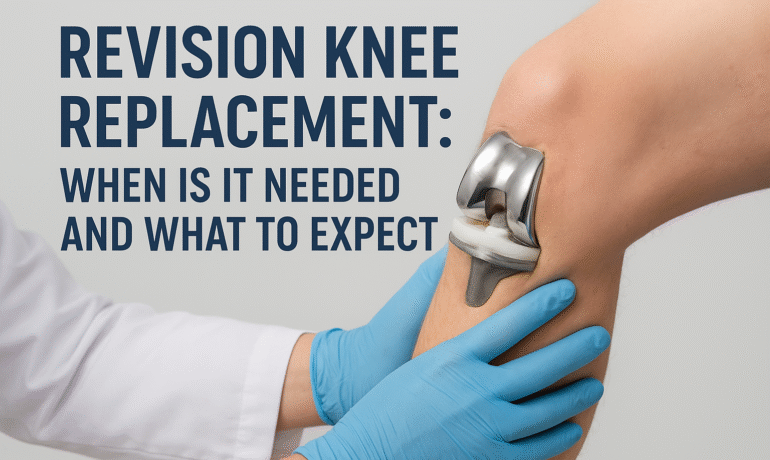Revision knee replacement is a surgical procedure performed when a previous knee replacement fails or causes complications. It helps restore mobility, reduce pain, and improve joint function. Unlike primary knee replacement, revision surgery is more complex and requires careful planning.
When Is Revision Knee Replacement Needed?
Several conditions may lead to the need for revision knee replacement:
Implant Loosening – Over time, knee implants can lose their attachment to bone, causing pain and instability.
Infection in Knee Joint – Persistent infection around the implant may damage tissues and require surgical replacement.
Fractures Around Implant – Accidents or falls can fracture bones near the implant, affecting stability.
Severe Knee Pain and Stiffness – If daily activities become difficult despite a previous surgery, revision may be necessary.
Wear and Tear of Implant – Artificial joints eventually wear out due to long-term use.
What to Expect During the Procedure
Revision knee replacement involves removing the old implant and placing a new one. Depending on bone quality, surgeons may use specialized implants, bone grafts, or metal augments for support. The procedure typically takes longer than primary knee replacement due to scar tissue and bone loss.
Recovery and Rehabilitation
Hospital Stay – Patients usually remain in the hospital for several days.
Physiotherapy – Exercises begin soon after surgery to regain strength and mobility.
Assistive Devices – Walkers or crutches may be required temporarily.
Long-Term Outcome – Most patients experience reduced pain and improved stability after full recovery.
Risks and Complications
Like all surgeries, revision knee replacement carries risks such as blood clots, stiffness, infection, or implant failure. However, with proper medical care and rehabilitation, success rates remain high.
Preparing for Revision Knee Surgery
Maintain a healthy weight.
Control blood sugar if diabetic.
Quit smoking before surgery.
Follow your doctor’s instructions for medications and exercise.
Conclusion
Revision knee replacement can restore mobility and improve quality of life when the first implant fails. With the right care, patients regain independence. Consult our Dr Vinay Orthocare for expert evaluation and guidance.
A successful revision requires advanced surgical expertise, rehabilitation, and patient commitment. Choosing the right orthopedic surgeon ensures long-term relief and stability.



